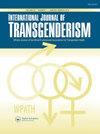Disparities in access to family physicians among transgender people in Ontario, Canada
Q1 Social Sciences
引用次数: 25
Abstract
ABSTRACT Background: Informed by the Gelberg-Andersen behavioral model for vulnerable populations, this study examined the prevalence of and factors associated with not having a family physician among transgender (trans) people in Ontario, Canada. Methods: Data were drawn from a respondent-driven sampling (RDS) survey of trans Ontarians age 16 and above (n = 433) conducted between 2009 and 2010. All analyses were weighted using RDS II methods. Prevalence ratios were estimated using average marginal predictions from logistic regression models. Results: An estimated 17.2% (95% CI, 11.0 to 22.9) of trans Ontarians (median age = 28.7, 77.3% White) did not have a regular family physician. In multivariable analyses accounting for other predisposing and need-related factors, transfeminine persons (trans women and non-binary persons assigned a male sex at birth) who were Indigenous and/or persons of color were less likely than other transfeminine persons to have a family doctor. In addition, trans persons who were homeless or had unstable housing were less likely to have a family doctor than those who were adequately housed. Conclusions: These results provide the first quantitative evidence of health disparities by race and gender within a Canadian transgender population and suggest a social gradient in access to care within Ontario's “universal health insurance” system.加拿大安大略省跨性别者在获得家庭医生服务方面的差异
背景:根据Gelberg-Andersen弱势群体行为模型,本研究调查了加拿大安大略省跨性别人群中没有家庭医生的患病率及其相关因素。方法:数据来自2009 - 2010年对16岁及以上的安大略省跨性别人士(n = 433)进行的RDS调查。所有分析均采用RDS II方法加权。使用逻辑回归模型的平均边际预测来估计患病率。结果:估计有17.2% (95% CI, 11.0 - 22.9)的跨安大略人(中位年龄= 28.7岁,白人77.3%)没有固定的家庭医生。在考虑其他易感因素和需求相关因素的多变量分析中,土著和/或有色人种的跨性别者(跨性别女性和出生时被指定为男性的非二元性别者)比其他跨性别者更不可能有家庭医生。此外,无家可归或住房不稳定的跨性别者比那些有适当住房的人更不可能有家庭医生。结论:这些结果提供了加拿大跨性别人群中种族和性别健康差异的第一个定量证据,并表明安大略省“全民健康保险”系统中获得护理的社会梯度。
本文章由计算机程序翻译,如有差异,请以英文原文为准。
求助全文
约1分钟内获得全文
求助全文
来源期刊

International Journal of Transgenderism
Social Sciences-Gender Studies
CiteScore
5.10
自引率
0.00%
发文量
0
期刊介绍:
International Journal of Transgenderism, together with its partner organization the World Professional Association for Transgender Health (WPATH), offers an international, multidisciplinary scholarly forum for publication in the field of transgender health in its broadest sense for academics, practitioners, policy makers, and the general population.
The journal welcomes contributions from a range of disciplines, such as:
Endocrinology
Surgery
Obstetrics and Gynaecology
Psychiatry
Psychology
Speech and language therapy
Sexual medicine
Sexology
Family therapy
Public health
Sociology
Counselling
Law
Medical ethics.
 求助内容:
求助内容: 应助结果提醒方式:
应助结果提醒方式:


